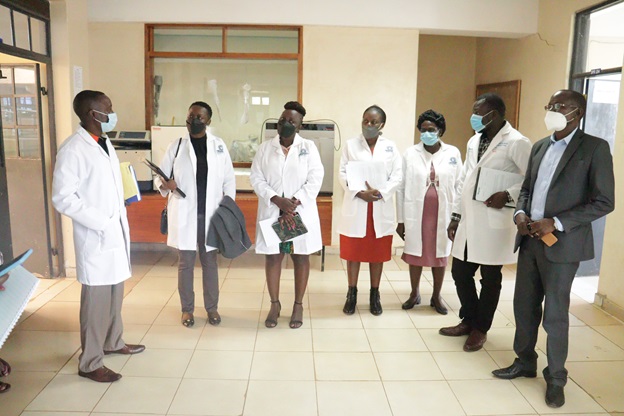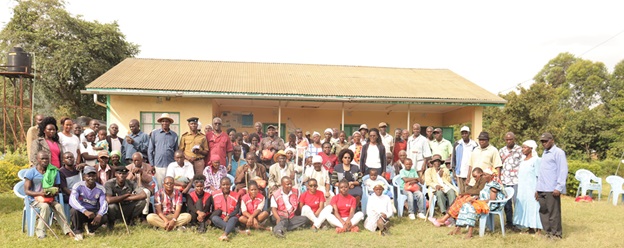Led by Mr. Nicholas Kitungulu, a lecturer in the Biological Sciences Department, the entomologists Dr. Eveline Olanga and Ms. Elizabeth Ayoma paid a courtesy call to the Deputy Vice-Chancellor, Academic and Students Affairs, Prof. Hussein Golicha who represented the Vice-Chancellor. The team also had a meeting with Prof. John Muoma who represented the Deputy Vice-Chancellor, Planning Research, and Innovation, Prof. Charles Mutai.

ABT Associates team and MMUST-PMI project managers having a discussion.
Speaking during the meeting, Prof. Golicha lauded the duo for choosing MMUST to implement the Malaria project. “I welcome you to MMUST and assure you that you will not regret choosing this great University. We are ready to support this initiative to ensure malaria eradication in this region,” he said.
Additionally, Prof. Muoma reiterated that MMUST is well placed for the implementation of the project. “Malaria is a menace especially in the Western region, with the great upsurge of local malaria cases, let us use Science to solve societal needs,” urged Prof. Muoma.
Further, Mr. Kitungulu expressed gratitude to the ABT team saying the MMUST has the capacity to run the Malaria project. He added that through this project, malaria risks would be reduced in the region. He was accompanied by Prof. Elizabeth Omukunda, Dr. Philip Ogutu, Dr. Christine Wanjala, and Mr. Willy Aganyanya.
“As ABT Associates, we train local people on Malaria prevention mechanisms where our key intervention is to conduct Indoor Residual Spraying (IRS). We work in partnership with World Health Organization (WHO) and National Malaria Control Program (NMCP),” stated Entomologist, Dr. Olanga.

Ms. Elizabeth Ayoma carrying out an inspection at the Biological laboratories.
The entomologists carried out laboratories capacity assessment which entailed checking out the lab equipment that will allow for Polymerase Chain Reaction (PCR) and ELISA tests, lab space as well as the availability of qualified personnel. They also conducted entomological surveillance. Entomological surveillance is a key component of malaria vector control as it provides information on vector species. PMI Kinga Malaria conducts such surveillances in eight counties including Kakamega, Busia, Vihiga, Siaya, Homabay, Migori, Kisumu, and Kisii.
Such initiatives which involve our own leading scientists have certainly placed MMUST at the center of the regional projects and dialogues surrounding Malaria.
By: Linet Owuor




.jpg)
